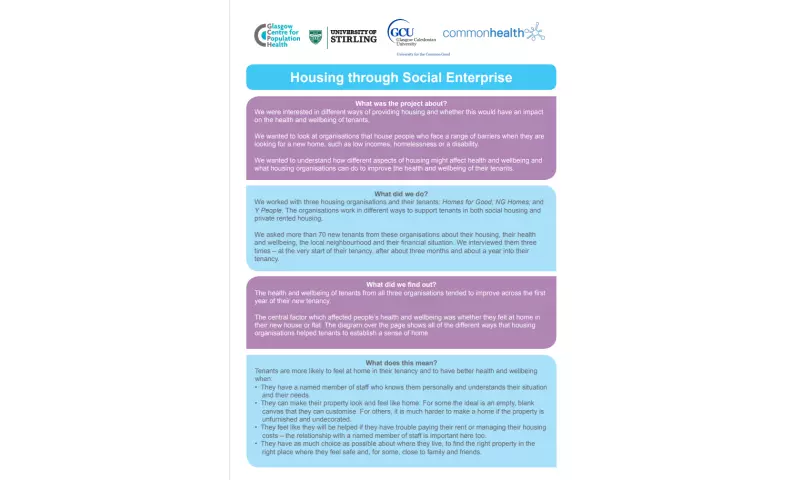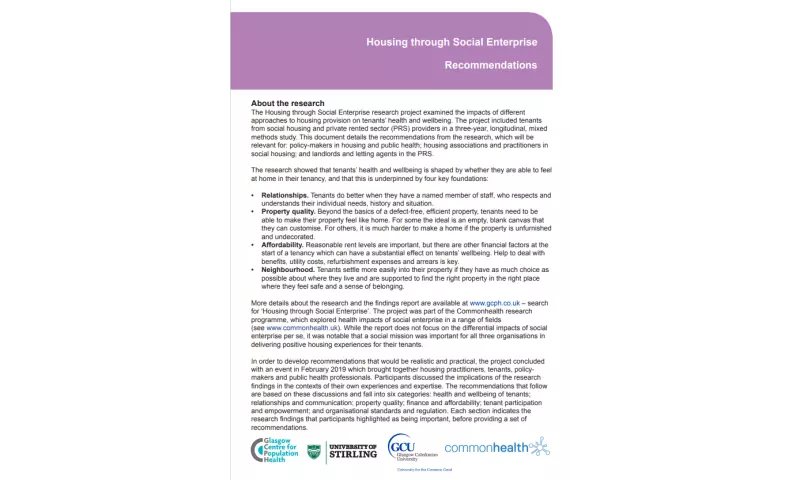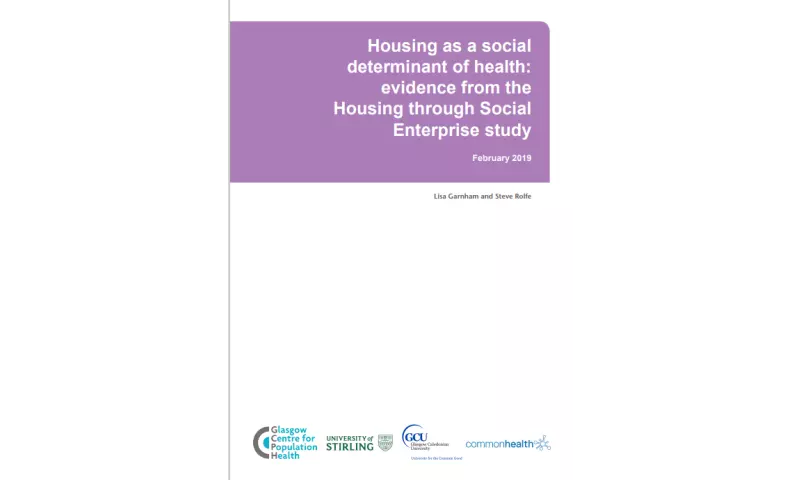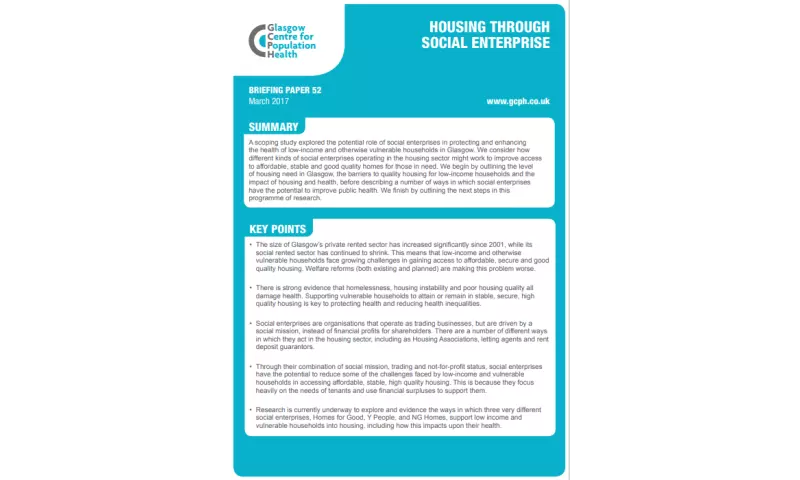Housing through social enterprise
Completed Project
Housing
Jan 2017 - Jan 2019
This research project aimed to examine the health and wellbeing impacts of different approaches to providing housing and working with tenants.
Previous research has demonstrated the damage to health that damp, mould and cold indoor temperatures can do, but relatively little is known about the impacts of less tangible aspects of housing.
This research is particularly important because of changes in the housing market in Glasgow (and across the UK) over the last 20 years. Across Scotland, the proportion of households in social rented accommodation has been in long term decline until very recently. After three decades of growth, owner-occupation began to decline after the start of the recession in 2008 and because of this, the proportion of households in the private rented sector more than doubled since the turn of the century, and at the time of this study accounted for 1 in 6 households. As a result, more low-income and vulnerable households are renting privately, often for many years.
These changes make it important to understand how the different approaches of landlords or housing organisations might affect tenants’ health and wellbeing. This study followed 75 tenants, working with three different housing organisations over the first year of their tenancy. Through face-to-face interviews, we asked them questions about their housing, their housing provider, their financial circumstances and their health and wellbeing.
Key findings
The research showed a number of ways in which the actions landlords, letting agencies and housing support organisations are important for tenants to be able to settle into a new tenancy and make their house feel like home.
Four aspects are key:
- Relationships - Tenants do better when they have a named person as their main contact at their housing provider, who respects and understands their individual needs, history and situation.
- Property quality - Beyond the basics of a defect-free, efficient property, tenants need to be able to make their property feel like home. For some the ideal is an empty, blank canvas that they can customise. For others, it is much harder to make a home if the property is unfurnished and undecorated.
- Affordability - Reasonable rent levels are important, but there are other financial factors at the start of a tenancy which can have a significant effect on tenants' wellbeing. Help dealing with benefits, utility costs, refurbishment expenses and arrears are key.
- Neighbourhood - Tenants settle more easily into their property if they have as much choice as possible about where they live, to find the right property in the right place where they feel safe and, for some, close to family and friends.
Collaborative working
This project was delivered by the University of Stirling, in partnership with the Glasgow Centre for Population Health. It was part of the CommonHealth research programme, based at Glasgow Caledonian University and funded by the Medical Research Council and the Economic and Social Research Council. Access more information about the CommonHealth project.
 Further resources & reading
Further resources & reading
Read a blog about the research findings by researcher Steve Rolfe on The Conversation website.
Intervening in the cycle of poverty, poor housing and poor health: the role of housing providers in enhancing tenants’ mental wellbeing.
Garnham L, Rolfe S, Anderson I, et al. Journal of Housing and the Built Environment 2021. https://doi.org/10.1007/s10901-021-09852-x
Housing as a social determinant of health and wellbeing: developing an empirically-informed realist theoretical framework
Rolfe S, Garnham L, Godwin J, et al. BMC Public Health 2020. DOI:10.1186/s12889-020-09224-0
A longitudinal, mixed-methods approach to exploring the impacts of housing on health and wellbeing Garnham L, Rolfe S. SAGE Research Methods 2020. DOI:10.4135/9781529708691
Hybridity in the housing sector: examining impacts on social and private rented sector tenants in Scotland Rolfe S, Garnham L, Anderson I, et al. Housing Studies 2019. DOI:10.1080/02673037.2019.1648770





